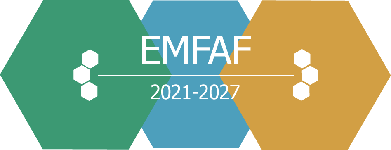Background:
There is increasing international and national concern for the conservation status of Atlantic salmon due to the hugely elevated levels of genetic introgression (i.e. harmful gene flow) from farm escaped fish into recipient wild populations. In Norway 64% of populations and on the west coast of Scotland 38% of populations are impacted to varying degrees. change. Ireland does not currently monitor the genetic status of its wild Atlantic salmon populations even though salmon farming is a significant endeavour along its Atlantic coast.
Project Description:
This project will address the significant threat to Atlantic salmon biodiversity from escaped cultured salmon, especially in the light of other pressures from ecosystem loss due to climate change, pollution, changes in land and sea use. This project will help inform improved aquaculture planning and licensing supporting a more sustainable industry. The project will set the contemporary status of introgression in wild stocks currently in Ireland.
Escaped farm salmon can be considered similar to an invasive species and represents a substantial and immanent threat to the integrity of Ireland’s wild salmon populations (each salmon river has at least one unique genetically distinct wild salmon population, many of the larger rivers have multiple different locally adapted sub-stocks). In Ireland there are 140 designated salmon rivers, the majority of which, particularly on the western seaboard, will require assessment and ongoing monitoring. Large and repeated hybridisation (gene flow) from non-native, domesticated farm strains leads to genetic extinction of a unique and irreplaceable element of Ireland salmon biodiversity port-folio. Protecting the integrity of this port-folio of individual salmon populations is critical to the productivity, adaptability to climate change and other stressors and resilience of the Irish salmon resource.
Monitoring the genetic integrity and identifying impacted salmon populations offers the opportunity for early intervention and prevention of loss of novel variation through development of e.g. design of MPAs, removal programmes for escaped salmon, attribution of cause, control and enforcement and adaptation to evolving environmental conditions.
It is proposed here that a genetic baseline deploying recently developed state-of-the-art genomics technology of Irish Atlantic salmon populations be established under the auspices of EMFAF.
Substantial associated additional benefits include, establishment of a baseline which would be extant before anticipated expansion of the salmon farming industry, compliance with NASCO Implementation Plan reporting obligations, identifying populations that should be prioritised for designation and protection under NATURA 2000 Prioritisation Action Framework, identification of Marine Protected Areas, a powerful methodology for national and international mixed stock fisheries analysis and the elucidation of the stock (river) specific biology in response to climate variability of the salmon in the marine environment (e.g. life history, survival, distribution).
- Monitoring the genetic integrity and identifying impacted salmon populations offers the opportunity for early intervention and prevention of loss of novel variation through development of e.g. MPAs, removal programmes, attribution of cause, control and enforcement and adaptation to evolving environmental conditions.
- Facilitate compliance with Ireland’s obligation to report to NASCO in respect of national ‘Implementation Plan’, the ‘Management of Aquaculture, Introductions and Transfers and Transgenics’
- Enhanced quality assured and integrated data to support evidence-based decision making, including spatial data services and studies (e.g. foreshore licensing, climate adaptation and ocean renewable energy policy support)
- Enable compliance with the protection of the Atlantic salmon as a Habitat’s Directive Annex II prioritised species.
- Provide a powerful basis for management, mitigation and monitoring of aquaculture ecosystem but also in this instance the protection and conservation of wild populations
This project will run from 2023 to 2026
Outputs of the project would be in the form of a report which would include:
The level of genetic introgression (reported on an individual river basis as % introgression or impact classification - No genetic change; Weak genetic change; Moderate genetic change; Major genetic change) in a sampled population
EMAIL: niall.omaoileidigh@marine.ie
